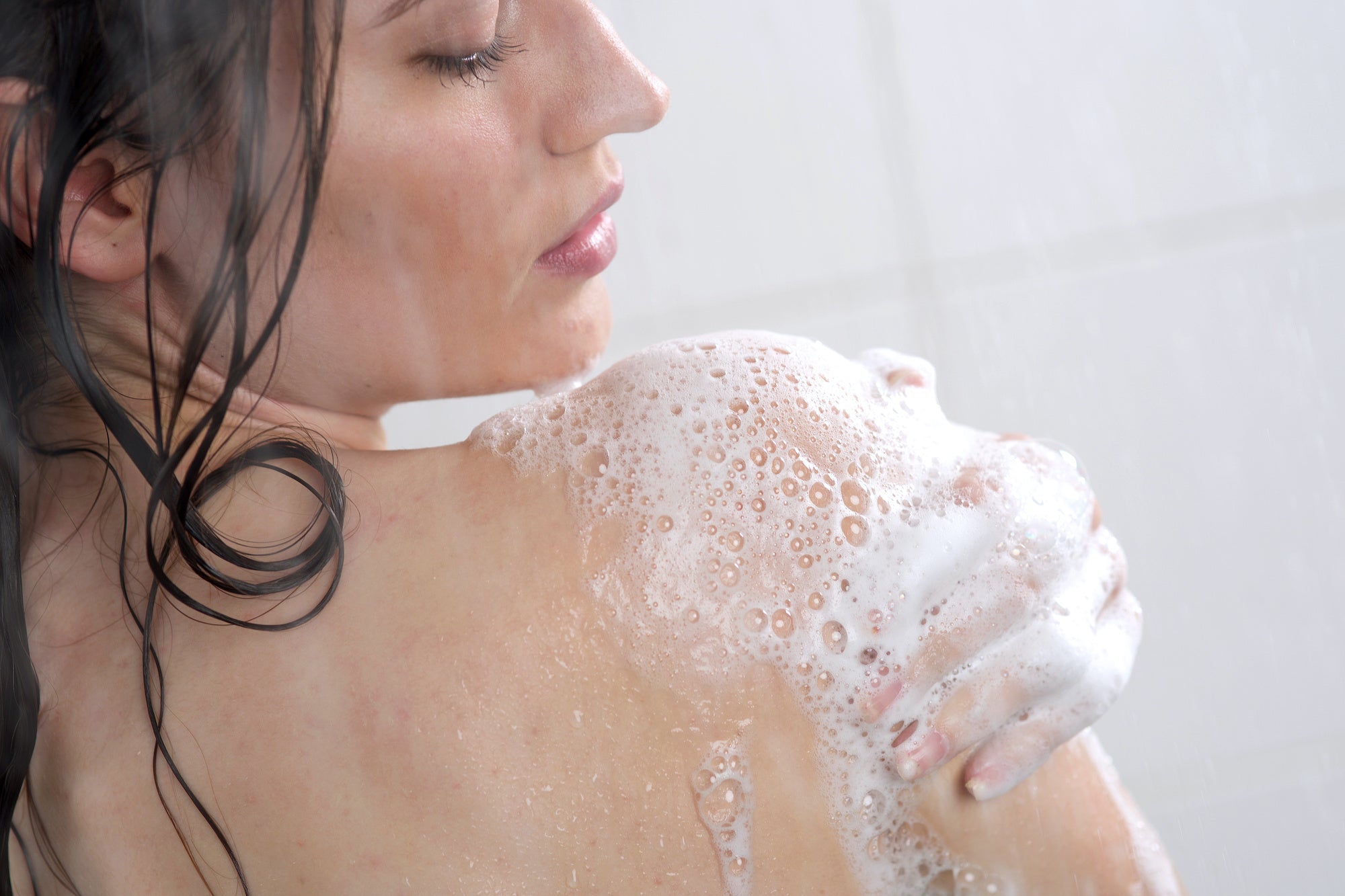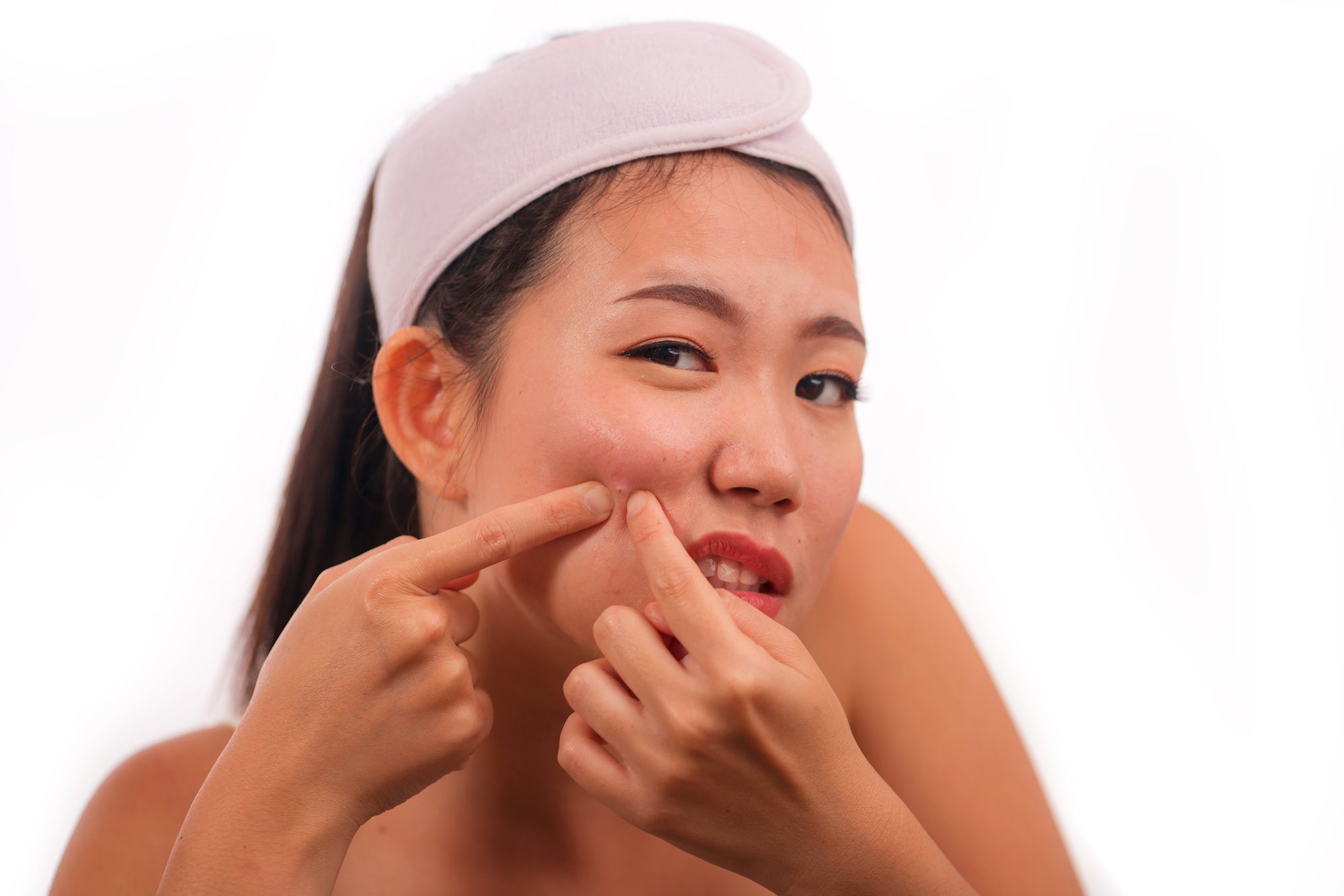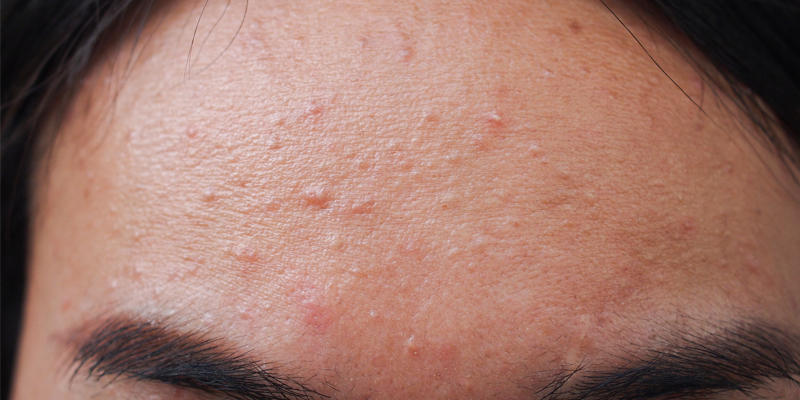
Tap Water and Acne: How Rinsing Can Wreck Your Skin
Doesn't it seem like every news story is about some new danger to you and your loved ones? So it’s no surprise that filtered water is ever more popular, as we all try to protect ourselves from the scary toxins and pollution floating around in our environment.
Besides, a lot of tap water straight-up tastes like dirty metal. (Shout out to every other kid who drank from the garden hose and lived to tell about it!)
But it’s not enough to just care about the water we drink. What about the water we wash with? Your tap water probably contains more than H2O, and it’s not all good for your skin!
Want to protect your complexion? Then it's time to find out what dark secrets your water is hiding.
1. Hard Water, Dry Skin
You've probably known for a while now that hard water is not a good thing. It’s listed alongside gross stuff like mildew in the Scrubbing Bubbles commercials, so the implication is clear:
Hard water is also bad water.
But what makes it so bad? What is hard water, anyway?
The answer is simpler than you might think. Hard water is just water that contains a high level of salts or minerals — usually calcium and magnesium.
That sounds kind of nice, doesn’t it? When you think about eating, minerals are goals. But topically, it’s a different story, and hard water is often the culprit behind chronic skin and hair issues.
This mineral-heavy water can dehydrate your skin and disrupt its natural barriers, making it vulnerable to bacteria and pollutants. The drying effect can be so severe that hard water has been linked to the appearance of conditions like eczema.
All of this intense dryness also triggers an emergency response from your sebaceous glands, which start pumping out natural oils to compensate. In the end, you’re left with a perfect storm of flaking skin cells, harmful bacteria, and excess oil — all the building blocks of an acne breakout!

There’s also the risk of premature aging. If hard water is regularly stripping the moisture from your skin, it can result in the early onset of fine lines and wrinkles.
And if your hard water contains heavy metals like iron, copper, zinc, or nickel, they can oxidize on your skin. This creates free radicals that can break down collagen and elastic tissue, adding sagging skin to your list of aging woes.
As the final insult to this injury, hard water makes it difficult to lather soaps and shampoos. This can prompt unwitting consumers to purchase high-lather or foaming products, which are often packed with skin-irritating surfactants. So their skin ends up double-damaged by hard water and harsh chemicals in their skincare.
2. Chemicals in Tap Water
Minerals aren’t the only things sneaking around your water pipes. Most tap water also contains chemicals — some which leach in by accident, and some which are added on purpose.
Two of the chemicals most commonly found in tap water are chlorine and fluoride, which are intentionally added to decontaminate the water supply. Chlorine is intended to kill dangerous bacteria, and fluoride promotes dental hygiene.
But you know the adage about good intentions. Just because these chemicals mean well doesn’t mean they’re healthy for your skin!
Does Chlorine Cause Acne?
As someone with acne-prone skin, I’ve always had a love-hate relationship with swimming pools.
I love being in the water and splashing around with my friends, but I’ve always felt self-conscious about going makeup-free. There have been times that I wore makeup to the pool, and just refused to put my head under!
And even when I was feeling brave enough to take a dip without makeup, I had another danger to worry about: my post-swim dry skin.
When I climbed out of the pool, I’d always grab my towel and run straight for the bathroom, so I could examine my face for any unsightly dry patches. Maybe I’d even apply moisturizer on top of all the sunscreen.
Swimming always left me feeling so parched. How could water be so dehydrating?
Some of the blame lies with chlorine. Much like in your tap water, chlorine is added to pools to fight contamination. Unfortunately, it also fights with your skin!
Chlorine strips natural oils and protective proteins from the surface of your skin. As with hard water, this harsh dehydration leads to a downward spiral from dry skin to excess sebum and, finally, breakouts!
(And if you’re drinking chlorinated tap water from your kitchen sink, the chlorine may kill off healthy bacteria in your digestive system, which can also contribute to acne!)
Plus, it’s prematurely aging, as your dried-out skin gradually cracks into creases and wrinkles.
These effects can be even worse if you’re exposed to chlorine in a hot shower, or by soaking in a chlorine-treated hot tub. The heat dilates your pores, allowing the chlorine to penetrate deeper into the layers of your skin.
So if you often swim or shower in water with high chlorine levels, your skin may be extra irritated and acne-prone. You’ll need to be extra conscientious to keep your skin properly balanced and moisturized!
Is Fluoride Safe for Skin?
No, I’m not talking about fluoride toothpaste (or the pervasive toothpaste-as-spot-treatment skincare myth.) I’m talking about the fluoride added to your tap water. It may be beneficial for your teeth (in moderation), but it’s not a friend to your skin.
Fluoride dries you out and contributes to acne, much like hard water or chlorine. But it also interferes with collagen production. Usually, collagen keeps your face plump and youthful. So by disrupting the collagen in your skin, fluoride worsens your skin’s elasticity and contributes to premature aging.
3. Water and Your Skin pH
As liquids go, water seems pretty neutral, right? It’s clear, colorless, and usually doesn’t taste like much of anything. It doesn’t seem like the sort of thing that would majorly unbalance your skin, but tap water can have a dramatic effect on your natural pH!
If you aren’t familiar, the pH scale essentially just measures how acidic something is. Ideally, your skin wants to remain a little bit acidic — in scientific terms, it likes a pH level slightly under 5.
This is important because that pH level helps regulate your skin’s natural protective barrier.
For one thing, keeping things acidic discourages fungus and bacteria. It also helps your skin retain moisture.
But most tap water has a pH level between 6.5 and 8.5, much higher than your skin’s ideal. Washing or rinsing with tap water can raise your skin’s pH, interfering with its hydration and ability to repel harmful bacteria.
This effect can last for hours or even days, leaving your complexion mighty vulnerable!
And what happens when your skin gets dry and overrun? Irritation, infections, and acne.
4. Protect Your Complexion
So, what can you do to counteract all these problems? It’s probably too much to ask that you avoid tap water altogether. Your friends and coworkers still want you to bathe.
Fortunately, there are other steps you can take to prevent water damage to your precious, one-of-a-kind face.
Diagnose the problem.
First, take a quick look at your faucets. Hard water tends to leave behind a chalky residue called limescale, which appears as a pale crust around showerheads, taps, or even at the bottom of your tea kettle. Another option is to invest in a pH or water hardness test. And for US residents, check the drinking-water quality report in your area for the lowdown on chemicals and contaminants.
Invest in a water filter.
As a kid, I remember being impressed when refrigerators had a built-in water filter. But now there are so many options! You can get filtered water jugs or filters that attach directly to your tap. There are even filters for your showerhead!
Use a toner to restore your balance.
One of the purposes of toner is to help correct your skin’s balance. If you wash your face with pH-upsetting tap water, try immediately following with a toner to help your skin recover. For example, our Luminous Complexion Toner deposits healing nutrients while gently clearing and hydrating!

Boil impurities out of your water.
(But let it cool before you splash it on your money-maker!)
This may help with hard water woes, depending on which type you’re facing. Different combinations of minerals can result in either temporary hard water or permanent hard water. With temporary hard water, boiling removes impurities and makes it much safer for your skin. But this method won’t work for permanent hard water, which contains tougher salts that can’t be removed by boiling. To figure out which type you have, you’ll need to test the water both before and after boiling.
Use a water softener.
...Maybe. This one is up for debate. Some experts recommend additives called water softeners to tackle permanent hard water. However other sources point out that water softeners show no evidence of helping dry skin conditions like eczema. This may be because they do not address the water’s pH or the presence of chemicals. At the very least, softening the water in your home may lead to cleaner faucets!
Keep your showers short.
The longer your skin is exposed to tap water, the more time chemicals and contaminants have to strip away your natural defenses. For extra protection, keep your showers on the cool side. Hot water opens your pores, letting dehydrating substances seep deeper into your skin and dry it out.
Fight free radicals with antioxidants.
Concerned that heavy metals in your tap water may be leading to free radical damage? Defend your skin by upping your intake of antioxidants. It’s easy — just check out all the antioxidants on our list of 99 Best Foods for Clear Skin.
Try a no-rinse skincare routine.
By going rinse-free, you can reduce the amount of contact between tap water and the extra-sensitive skin on your face. Our Clear Skin Kit contains every step to cleanse and purify your complexion without splashing water everywhere. Plus, layering on products without rinsing allows their vitamin-rich ingredients to sink in thoroughly and nourish your skin from within.






